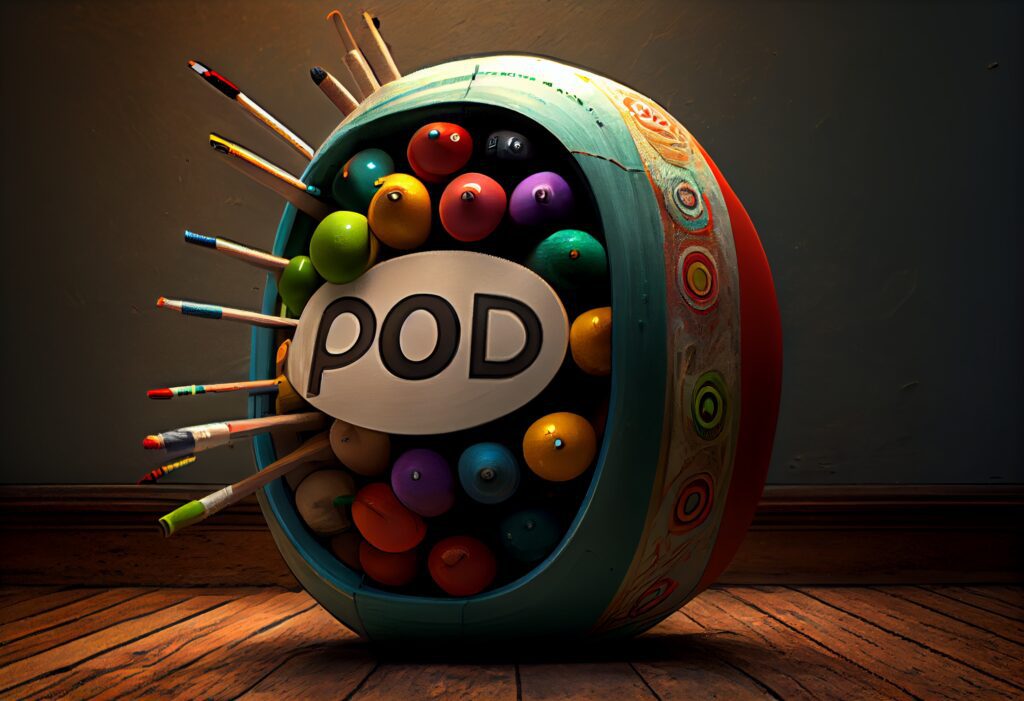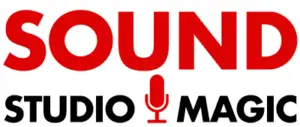In recent years, podcasting has gained tremendous popularity, providing listeners with diverse content to engage with. As more people become intrigued by this form of media, a common question emerges: Can anyone do a podcast?
The answer, in short, is yes—virtually anyone can create and host a podcast. The barriers to entry are relatively low, and you don’t need to be a professional broadcaster or possess specialized skills to get started. All you need is a concept, the requisite equipment, and a commitment to producing quality content for your intended audience.
However, it’s essential to understand that developing a successful podcast involves more than simply hopping on a microphone and sharing your thoughts. It requires planning, research, dedication, and delivering value to your listeners. Additionally, understanding the technical aspects of podcasting, such as recording and editing, will help ensure a polished final product.
Table of Contents
- Define Podcasting
- Equipment and Budget
- Choosing a Topic
- Planning and Recording
- Editing and Publishing
- Promotion and Monetization
- Conclusion

Define Podcasting
Podcasting is a digital audio content format that can be streamed, downloaded, and consumed on demand. Podcasts are usually episodic and cover various topics, such as storytelling, education, interviews, news updates, and entertainment.
Originating from a blend of the words “iPod” and “broadcast,” podcasts have evolved into a popular medium for content creators to reach their audiences. Listeners can subscribe to their favorite podcasts and have new episodes automatically delivered and accessible on platforms like Apple, Spotify, and Google.
Creating a podcast typically involves the following steps:
- Recording the audio content, often using a microphone and recording software
- Editing the recorded audio to refine the content and ensure optimal quality
- Uploading the edited audio file to a podcast hosting provider
- Distributing the podcast feed to various podcast directories and platforms
Podcasting has grown in popularity over the years due to its accessibility and flexibility, allowing anyone with a story or message to share to connect with a global audience.
Equipment and Budget
Starting a podcast doesn’t require expensive equipment, but the quality of your audio plays a significant role in your podcast’s success. Here are the essential pieces of equipment to consider for different budgets:
- Microphone: A USB or XLR microphone is crucial for clear audio. USB options are more affordable and beginner-friendly, while XLR microphones provide better sound quality but can be more expensive.
- Audio Interface: For those using XLR microphones, an audio interface is essential to connect the microphone to your computer. Prices vary depending on the number of inputs and additional features.
- Headphones: Closed-back or studio-quality headphones are recommended to monitor your real-time audio.
- Pop Filters and Windscreens: These accessories reduce plosives and wind noise, ensuring cleaner audio recordings.
Depending on your budget, here are three equipment setups:
| Category | Low Budget | Medium Budget | High Budget |
|---|---|---|---|
| Microphone | Samson Q2U | Audio-Technica ATR2100x | Shure SM7B |
| Audio Interface | Not Required (USB) | Focusrite Scarlett Solo | Universal Audio Apollo Twin |
| Headphones | Audio-Technica ATH-M20x | Sony MDR7506 | Beyerdynamic DT 770 Pro |
| Accessories | Basic Pop Filter | Advanced Pop Filter and Shock Mount | Advanced Pop Filter, Shock Mount, and Boom Arm |
Remember that investing in quality equipment can be beneficial in the long run but starting with basic gear is enough for beginners. As your podcast grows, you can upgrade your equipment to enhance your audio quality.
Choosing a Topic
Selecting a topic is one of the most crucial steps when starting a podcast. Your topic should be something you’re passionate about and genuinely interested in, as this will keep you motivated and engaged.
Moreover, consider the following factors when choosing a topic:
- Relevance – Ensure your topic is relevant to your target audience and addresses their needs or interests.
- Niche – Focusing on a niche subject increases your chances of finding a dedicated and loyal audience, and it can help you stand out from the competition.
- Expertise – Having expertise or experience in a particular subject can establish credibility and authority, leading to a successful podcast.
It’s important to research existing podcasts in your chosen niche, analyze the successful ones, and look for missing information or gaps you can fill. Be open to refining or narrowing your topic to distinguish your podcast from others.
Planning and Recording
Before starting a podcast, it’s essential to plan the content, format, and target audience. Begin by brainstorming topic ideas and deciding on a consistent theme or subject matter. Next, identify your target audience, which will help you tailor your content to their interests and preferences.
Consider the format of your podcast, such as whether it will be interview-based, storytelling, or a mix of both.
Decide on episode frequency and length to maintain consistency for the listeners. Create a rough script or outline for each episode, but be prepared to deviate from it when necessary for a more genuine and engaging conversation.
Recording quality is crucial for a successful podcast. Invest in a decent microphone and pay attention to your recording environment. Avoid noisy areas, and use soundproofing if possible. Some popular choices for podcast recording software include Audacity, Garageband, and Adobe Audition.
Familiarize yourself with their features and choose one that fits your needs.
In addition to recording, editing plays a significant role in shaping the final product. Remove any awkward pauses, background noises, or irrelevant information. Be mindful of balancing polished episodes and preserving the natural flow of conversation.
Editing and Publishing
While recording a podcast is crucial, editing and publishing play a vital role in creating a polished final product. Once you have completed the recording, you must take the time to edit out any inconsistencies, background noises, and other imperfections to ensure a smooth listening experience for your audience.
There are numerous editing software options available, some free and others paid. Popular choices include:
- Audacity (free)
- GarageBand (free for macOS)
- Adobe Audition (paid)
- Hindenburg Journalist (paid)
Regardless of which software you choose, you must familiarize yourself with its features and functionalities to make editing more comfortable and efficient.
Once your podcast episode is edited and ready, publishing it is next. A podcast hosting platform is used to store and distribute your podcast episodes. Below are some well-known hosting platforms:
| Hosting Platform | Key Features |
|---|---|
| Spotify for Podcasters | Free hosting, simple podcast distribution, and monetization options |
| Libsyn | Flexible plans, advanced analytics, and reliable support |
| Podbean | Affordable plans, website integration, and monetization features |
Once you have chosen a hosting platform, submit your podcast to popular directories, such as Apple, Spotify, and Google. This will help increase the visibility of your podcast and attract a broader audience.
Promotion and Monetization
Starting a podcast may seem easy; however, effectively promoting and monetizing a podcast requires a strategic approach. To ensure your podcast reaches a wider audience, consider using various marketing channels, social media platforms, and communities oriented around your podcast theme.
When promoting your podcast, some of the popular methods include:
- Collaborating with other podcasters or influencers in your niche
- Utilizing email marketing and newsletters
- Joining and engaging in online communities on platforms such as Reddit, LinkedIn, or Facebook groups
- Optimizing your podcast for search engine discovery
Monetizing a podcast can be achieved through several different models. Here are a few common methods:
| Monetization Method | Description |
|---|---|
| Sponsorships and Advertising | Partnering with sponsors or featuring ads in your podcast episodes can generate revenue. |
| Affiliate Marketing | Recommending and selling products or services in exchange for a commission on sales. |
| Premium Content or Subscription Model | Offering exclusive content or ad-free episodes to listeners through a paid subscription. |
| Donations and Crowdfunding | Seeking financial support from your audience through platforms like Patreon or direct donations. |
| Merchandise Sales | Designing and selling branded merchandise such as t-shirts, mugs, or stickers. |
Choosing a monetization method that aligns well with your content, audience preferences, and the value you provide is essential. Even though it might be tempting to include multiple monetization strategies, it’s crucial to maintain content quality and prioritize the potential impact on listener experience.
Conclusion
In summary, podcasting is accessible to anyone passionate about sharing their thoughts, ideas, or stories. It doesn’t require expert skills, and with affordable equipment and user-friendly platforms, it’s become an attainable creative outlet for many.
However, to create a successful podcast, it’s essential to consider factors such as content quality, consistency, and audience engagement. Investing time in research, planning, and promotion is crucial for growth and long-term sustainability.
Remember that patience and persistence are key to improving and refining podcasting skills. Embracing feedback and staying true to one’s unique voice will undoubtedly contribute to a positive experience in the podcasting world. So, while anyone can start a podcast, it takes dedication and effort to make it thrive.
- Review of the ALABS IRON MINI-WL: A Powerhouse Wireless Microphone - October 4, 2023
- What is a Saturator in Music Production: A Brief Explanation - May 11, 2023
- What Are Rotary DJ Mixers? An Overview - May 11, 2023
SoundStudiomagic.com is a participant in the Amazon Services LLC Associates Program, an affiliate advertising program designed to provide a means for sites to earn advertising fees by advertising and linking to Amazon.com. We also participate in other affiliate programs which compensate us for referring traffic.

